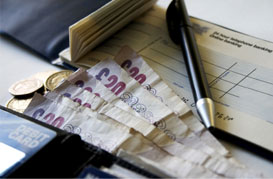
20
May
May
Direct Debit vs Cash Cheque
Posted by

This article discusses the two forms of payment you are likely to encounter when requested to pay for your energy – direct debit and cash cheque. It is worth noting the difference between the two processes and the additional costs incurred should you choose a cash cheque which increasingly less acceptable to suppliers and in some cases simply not an option.
Definitions
Direct Debit is the process of electronic payment from one bank account to another – this involves an agreement that the energy supplier has the authority to remove the appropriate billed amount from the client account. This transaction is different to a standing order because Direct Debit allows payments of different values. On the other hand, Cash Cheque is a term that is applied to the means of payment by which money is transfered to another bank account via cheque, cash or manual electronic payment – the onus is upon the client to pay the energy company as the energy company does not have the authority to automatically remove the appropriate credit.
Direct Debits can be fixed or variable:
- Fixed payments are essentially a payment of the same value each month – the advantages of this are that the payments over a long period of time are easier to calculate, whereas the disadvantage is that there may be a large lump sum required later on to cover the remaining charges.
- Variable payments require the client to pay the full amount owed to the energy company at the end of a billing period. The advantage is that there are no outstanding payments to be made each time the full amount is cleared but the disadvantage is that it is not as easy to keep track of payments.
The advantage of either of these methods of payment is that your business will never be late paying the energy bills [providing that you have enough funds in your account at all times!]
Cash Cheque: Expensive
Cash Cheque is normally more expensive than Direct Debit. This is because energy companies prefer Direct Debit for the security of income that it brings whereas Cash Cheque methods can be subject to 2% surcharge or a fixed charge of £25 + vat per contract per month [£300 + vat per year per site]. Penalties for using Cash Cheque are therefore significant and Torse recommends that you pay by Direct Debit where possible.
Category : Administration / Payment
- Bookmark :
- Digg
- del.icio.us
- Stumbleupon
- Redit it
Sorry, the comment form is closed at this time.




